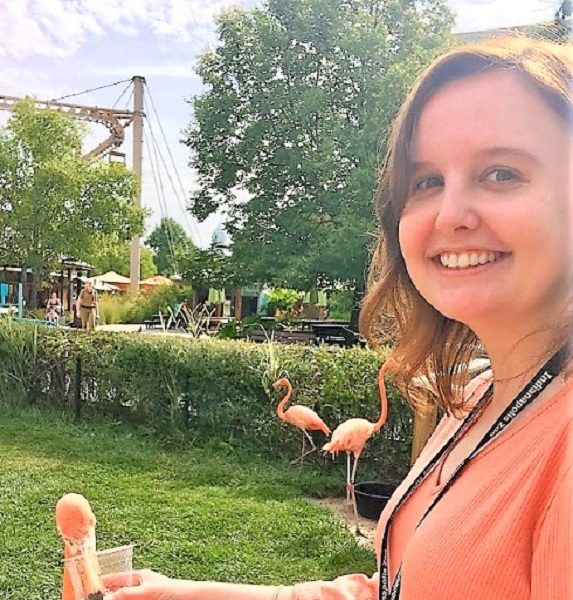
As an Evaluations and Exhibit Development Fellow at the Indianapolis Zoo, I do a lot of writing. I write signs for Zoo exhibits, materials for the Zoo magazine, and evaluation tools like surveys. The words I use are important to how guests perceive the Zoo’s animals. Often, when I’m tasked with writing about an animal, I gather all of the relevant information and then look at that animal for a while. I’m trying to look at it with a new perspective – from the guest’s point of view.
Sometimes, writing comes easily because I’m telling a straightforward story. For example, “Our two grey seals made their debut this summer! Ziggy and Scooter are brothers and arrived in May from the Brookfield Zoo in Chicago. Three-year-old Ziggy is very playful and loves to munch on things like Jell-O and ice. Scooter is a curious one-year-old learning from his older brother.”
Other times, I’m faced with a Plane Head Filefish swimming back and forth, fluttering its fins at me. I had to learn the filefish’s hidden talent to find the story. The filefish’s label reads, “In the wild, Plane Head Filefish conceal themselves by changing color. Then they snatch a meal of crabs and worms between their teeth.”
I don’t think people often associate writing with evaluations. However, word choice is vital in surveys. Again, I try to see animals from the guest’s point of view when writing.
While developing the survey for the Zoo’s orangutan exhibit, I began with a list of 60 words that guests might use to describe orangutans. I observed the orangutans and how guests interacted with them to choose my words carefully. This list included words like “complex”, “playful”, and “solitary”, among others. I narrowed my list to 16 words, then asked guests to circle the 3 words they most associated with the Zoo’s orangutans. And even then, guests were ignoring my words and adding their own, such as “human-like” and “wild.” Clearly, I missed a few things while watching the orangutans.
All this to say that writing for the Zoo is complex. I have to put myself in the place of guests any time I am writing. I also have to choose words that tell that animal’s story because they can’t write it for themselves.

